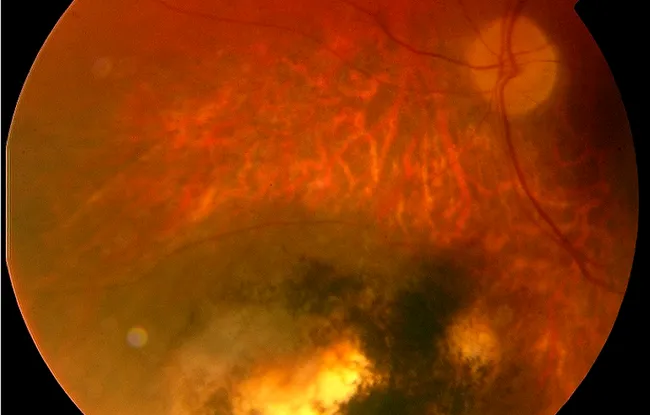- Home >
- Institut Curie News >
- A new factor in prognosis for metastatic uveal melanoma
Uveal melanoma, a cancer of the eye for which Institut Curie is the leading national center, is a relatively rare disease, with 500 to 600 cases diagnosed each year in France. Of these cases, over 30% will develop a metastatic form, generally in the liver.
Only one quarter of them can be operated on for removal of the metastases. But despite this selection of patients most likely to benefit from surgery - according to markers including age and the extent of the metastases - survival without liver recurrence is very short, often just a few months. We needed another marker to improve our prognoses.
Explains Dr Pascale Mariani visceral surgeon in the General and Digestive Surgery department at Institut Curie’s Hospital Group.
Circulating tumor DNA related to survival without recurrence
To identify it, Pascale Mariani and her colleagues from the Hospital Group (surgeons, oncologists and radiologists) teamed up with the Circulating Cancer Biomarkers (CCB) laboratory of Prof. François-Clément Bidard, and with the DNA Repair and Uveal Melanoma team (Inserm U830/Université Paris Cité), headed by Marc-Henri Stern. The plan was to conduct a clinical trial to assess the relevance of circulating tumor DNA (ctDNA) as a factor for predicting survival of patients undergoing surgery.
This trial, promoted by Curie since it was designed by the doctors of the Institute, began in 2016. Its findings have just been published in the journal Annals of Surgery.
Among 47 patients selected for surgical removal of metastatic tumors, we showed that those without ctDNA before the surgery had median survival without recurrence of 12 months, compared to 5.5 months for those with ctDNA
Summarizes Marc-Henri Stern.
Moving towards new clinical trials
In pure numbers, overall survival is also reduced for the second in relation to the first.
We also found that detection of ctDNA in the blood four months after the surgery is correlated with shorter survival without recurrence
Adds Shufang Renault, deputy head of the CCB laboratory
This discovery has direct implications for the patient’s treatment.
The fact of whether or not ctDNA is detected will be incorporated into our considerations concerning surgery. It will help us to build preparatory clinical trials
Announces Pascale Mariani.
Aiming for example to offer pre-operative chemotherapy or immunotherapy to patients who are ctDNA-positive to try to prevent rapid recurrence.
The arrival of the first effective medication - Tebentafusp - opens up opportunities for new clinical trials, to test it in combination with surgery. Research in the field of uveal melanoma is in a state of radical change.
Explains Marc-Henri Stern.
Reference: P. Mariani et al., Circulating tumor DNA as a Prognostic Factor in Patients with Resectable Hepatic Metastases of Uveal Melanoma, Annals of Surgery (2023). DOI: 10.1097/SLA.0000000000005822



